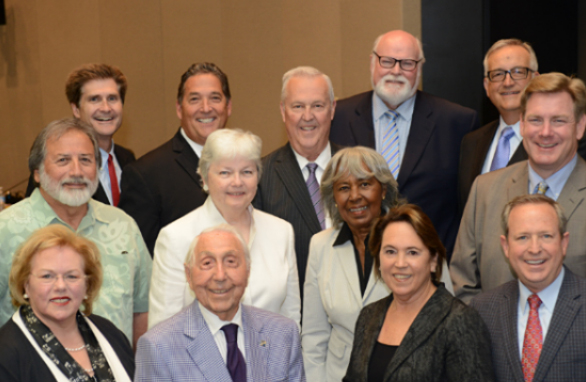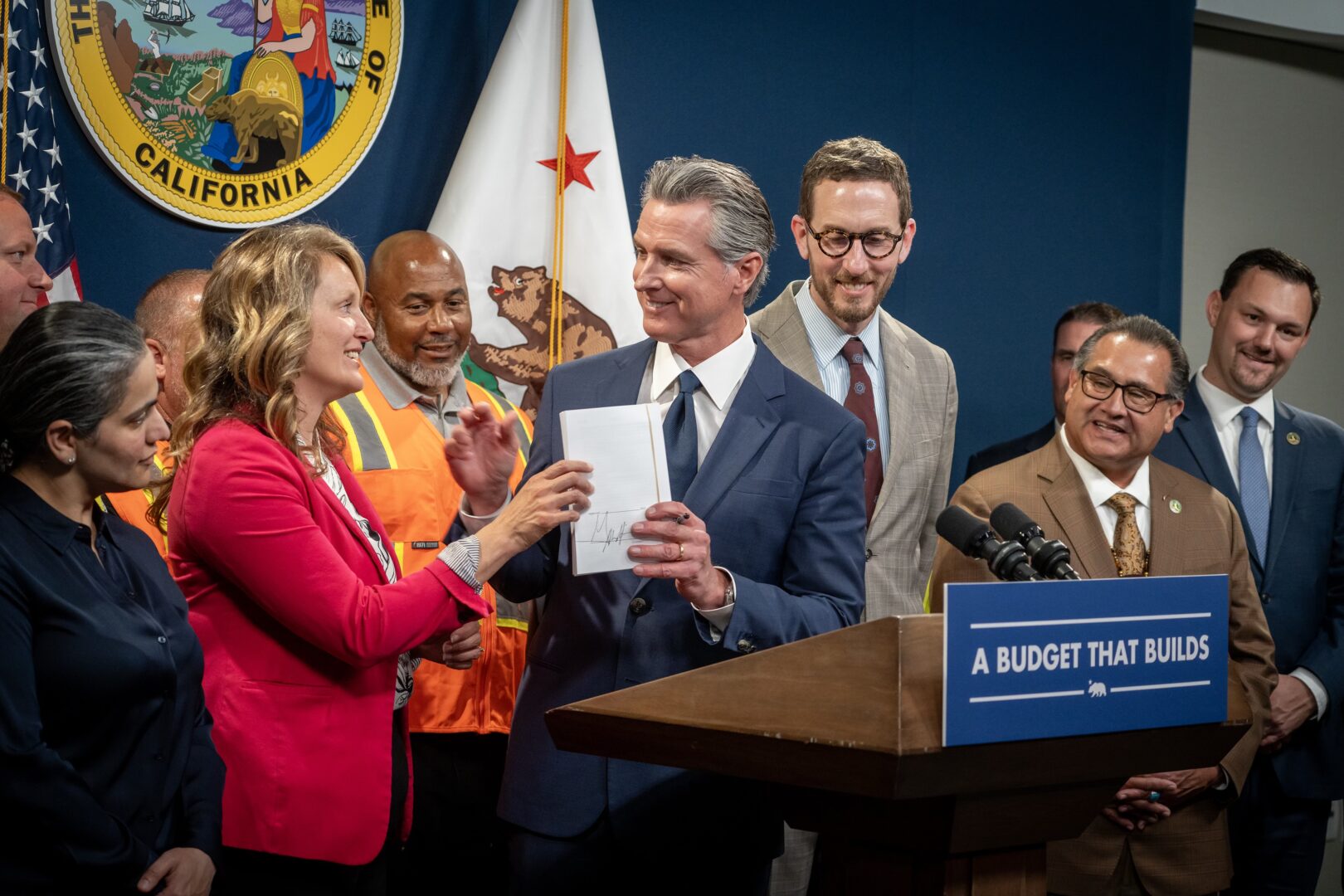Several days after active transportation and equity advocate Tamika Butler's resignation from the California Transportation Commission was confirmed, a bit more information about the reasons behind her resignation is available. While Butler has made no official statement and does not wish to comment, her employer, Toole Design, issued the following statement:
We deeply regret that Tamika Butler, our California Planning Director, and Director of Inclusion, has had to resign from the California Transportation Commission. Unfortunately, Californians will not benefit from her dynamism, transportation expertise, and unique perspective on the important issues facing the state today. Our shared commitment to the highest ethical standards, confirmed by compelling legal advice, made it impossible for Tamika to continue her career as a transportation professional in California (with Toole Design or in any capacity), while also serving on the CTC. It is unfortunate that the rules around potential conflicts of interest in California prevent her - or anyone active in the transportation industry - from fully performing these duties.We support Tamika in this decision and look forward to working with her to amplify the voices of marginalized people and communities throughout California and North America.
Her resignation is a big disappointment to advocates who hoped the outspoken Butler would bring sorely needed expertise about the connections between equity and transportation, and active transportation, to the commission. Indeed, some feared that her very outspokenness--Butler is known for being quite blunt when she sees a problem that needs to be addressed--was a factor in her resignation. Not so, said Butler via Twitter:
Things end before we're ready not before they're supposed to. Ppl want me to talk abt this. I let my work do the talking Gov & many ppl see me as a person of integrity only committed to serving ppl in all I do. Still that person. Work to do. No need to be on a commission to do it https://t.co/7ciJOxFOfF
— tamika butler is @tamikabutler@mastodon.social (@TamikaButler) January 17, 2020
Butler is holding herself, and being held to, a high ethical standard, which is what we should expect from government officials and appointees. Potential conflicts of interest are rightly subject to scrutiny. However, it is a problem if, as her employer put it, "rules around potential conflicts of interest in California prevent... anyone active in the transportation industry" from "fully performing" the duties of a commissioner. Transportation industry experts are uniquely qualified to address transportation issues, and their input is useful. On top of that, Butler is uniquely qualified to address how the transportation industry, and the commission's decisions, affect communities that live with the often negative consequences of transportation investments.
A coalition of groups who have worked on the intersections of transportation and equity, and have been pushing for wider representation on the body that makes major transportation funding decisions, sent a letter to Governor Newsom [PDF] pointing out why this is a problem.
Commissioner Butler’s unexpected departure creates a void on the Commission that she filled as an individual with experience working with disadvantaged communities and low-income communities of color as well as direct professional experience in advancing a multimodal transportation system. This appointment was directly in line with the intent of AB 179 (Cervantes, 2017) that directs the Governor of California to appoint Commissioners to the CTC that have “expertise in transportation issues, taking into consideration factors including, but not limited to, socioeconomic background and professional experience, which may include experience working in, or representing, disadvantaged communities.”
There's another side to this. Other commissioners are also active in industries that directly benefit from transportation investment decisions, including freight logistics, sprawl development, and labor. Although they make an elaborate show of recusing themselves from specific votes--even going so far as to leave the room when votes are counted--they still participate in discussions about investment and policy priorities. Nor do they refrain from stating their view that California must keep building roads to accommodate freight movement and "edge" development (this last is a particular interest of, and frequently stated priority for, Commissioner Lucy Dunn, for example).
That is one view, and it is deeply informed by the commissioners' day jobs. It's not as if commissioners are expected to come to the table with no knowledge about transportation needs. But they all tend to understand--and advocate for--the specific transportation needs that affect what they do out in the world. Where is the line drawn between that and potential conflicts of interest?
As the coalition's letter states,
Despite its significant role and impact on transportation policy and funding, the CTC has long suffered limited leadership not only on climate and air quality issues, but also environmental and transportation justice. As a result, our most vulnerable and marginalized low-income communities of color across the state have remained almost exclusively outside the purview of the CTC and our climate challenges have been exacerbated by this long-standing composition.
When advocacy groups have tried to discuss why transportation funding decisions need to address equity, they have faced hostile questions and defensive posturing from commissioners. That's why Butler's appointment was so important to equity and active transportation advocates, and why her resignation is so devastating.
It's a lot to ask a single outspoken leader to represent all marginalized communities. Ideally, this would be the moment to recognize the need for more than one. But doing so would also likely require looking beyond the usual proving grounds to leaders who challenge traditional transportation silos and center justice in their work, lenses the wider transportation community has been slow to embrace.
The open question is, how will the commission do a better job of representing the people it serves? The coalition's letter asks the governor to find solutions that can help the state "appoint and retain qualified individuals ... that are employed in the transportation sector with specific subject matter expertise." They also ask him to look at what policies or changes might be needed to ensure that qualified commissioners are not financially prohibited from participating, which can limit representation to people with means.
The official state response to Butler's resignation, which comes from the California State Transportation Agency, offers some hope:
We are sad to see Tamika go. She brought much-needed perspective and expertise to the California Transportation Commission on equity, sustainability, how to invest better in active transportation, and the inclusion of all. Transportation investments today require more than just solving for car traffic, and we hope to find someone with Tamika’s passion for inclusive, greener, and safer active modes of transportation.






